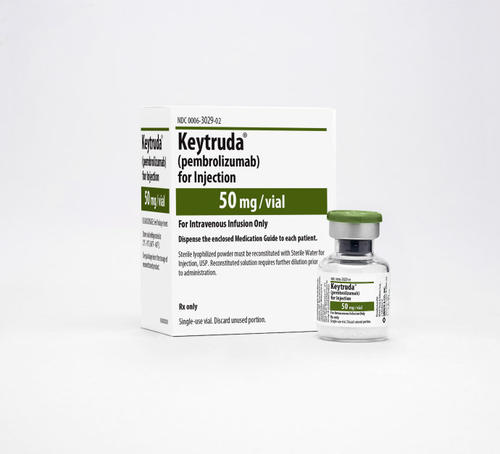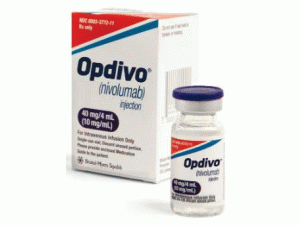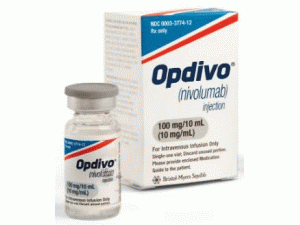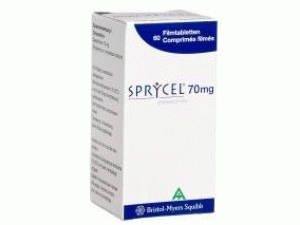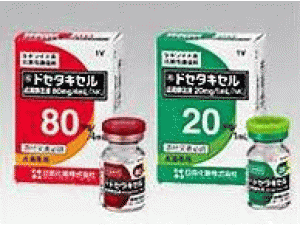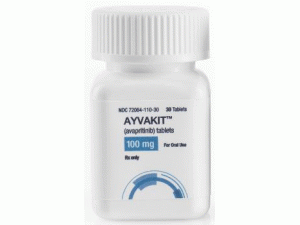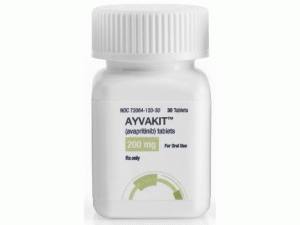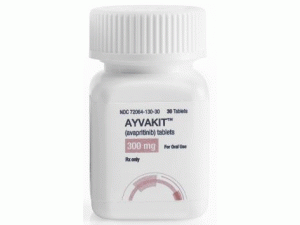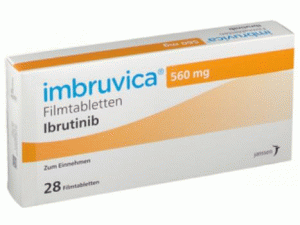邦罗力注射剂|Bondronat(ibandronic acid)
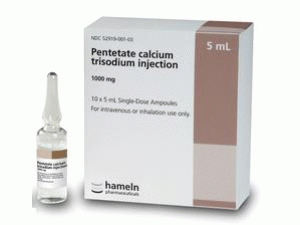 产地国家:德国
处方药:是
所属类别: 6毫克/瓶 1瓶/盒
包装规格: 6毫克/瓶 1瓶/盒
计价单位:盒
生产厂家英文名:Roche
原产地英文商品名:Bondronat 6mg/Vial 1Vial/box
原产地英文药品名:ibandronic acid
中文参考商品译名:邦罗力注射剂 6毫克/瓶 1瓶/盒
中文参考药品译名:伊班膦酸
产地国家:德国
处方药:是
所属类别: 6毫克/瓶 1瓶/盒
包装规格: 6毫克/瓶 1瓶/盒
计价单位:盒
生产厂家英文名:Roche
原产地英文商品名:Bondronat 6mg/Vial 1Vial/box
原产地英文药品名:ibandronic acid
中文参考商品译名:邦罗力注射剂 6毫克/瓶 1瓶/盒
中文参考药品译名:伊班膦酸
简介:
部份中文邦罗力处方资料(仅供参考)邦罗力注射剂 Bondronat amp制造商上海罗氏性状本药的化学名称为 :3-(N-甲基-N-戊基)氨基-1-羟基丙烷-1,1-二膦酸,一钠,一水合物,分子式 :C9h22NO7P2Na·h2O,分子量 :359.24。本品为无色的澄明液体。每1 mL注射液中含有伊班膦酸单钠盐一水合物1.125 mg,相当于含伊班膦酸1 mg。赋形剂 :氯化钠,乙酸,乙酸钠,注射用水。 药理作用:伊班膦酸属双膦酸盐化合物,能特异地作用于骨组织,对骨骼的特异性选择作用是由于双膦酸盐对骨骼中的无机物具有高度亲和性。双膦酸盐通过抑制破骨细胞的活性起作用,但其确切的作用机理尚不清楚。体内试验中,伊班膦酸能预防因性腺功能丧失、维甲酸类化合物、肿瘤或肿瘤提取物引起的骨质破坏。通过对Ca45的代谢动力学研究和试验中观察到与骨结合的带放射性标记四环素从骨骼中的释放,证实了伊班膦酸能抑制骨的内源性重吸收。当伊班膦酸的剂量远高于药理学有效剂量时,对成骨过程无任何影响。研究表明,伊班膦酸抑制肿瘤引起的溶骨现象、尤其对肿瘤性高钙血症的临床治疗特点是能使血钙水平和尿钙排泄下降。 药代动力学:在正常健康志愿者体内进行了伊班膦酸0.5、1.0、2.0mg单次静脉注射后的药代动力学研究,在20例绝经后妇女体内进行了2.0、4.0、6.0mg单次静脉注射后的药代动力学研究。结果显示下列药代动力学参数与给药剂量无关 :终末半衰期10-16小时 ;总清除率130mL/min;肾脏清除率88 mL/min ;肾脏重吸收率(0-32小时)60% ;表观分布容积150L。伊班膦酸的体内清除过程分两相进行。静脉给药后部分以原形经尿排出,其余部分与骨组织结合。伊班膦酸单次2mg、4mg和6mg静脉滴注2小时给药,其药代动力学参数与剂量相关。单次6mg静脉滴注2小时后的血清峰浓度为328ng/mL,而单次2mg静脉滴注2小时后的峰浓度为246ng/mL。目前,尚无高钙血症、肝或肾功能不全时的药代动力学资料。伊班膦酸与血浆蛋白的结合率与其血清浓度无关。当伊班膦酸浓度达2000 ng/mL时,其蛋白结合率为99%,但治疗剂量下不会达到如此高的血药浓度。虽然推测伊班膦酸可能与骨组织长期结合,但缺乏相关的临床资料。 适应症:肿瘤引起的病理性(异常)血钙升高(高钙血症)。 用法用量: 本品静脉给药通常应在医院中进行。医生应根据下列因素决定给药剂量。接受本品治疗前必须给患者用生理盐水充分水化。应同时考虑高钙血症的严重程度和肿瘤类型。对大多数严重高钙血症(白蛋白纠正的血清钙浓度≥(greater than or equal to)3mmol/L或≥(greater than or equal to) 12mg/dL)患者,单次4 mg的剂量是足够的。对中度高钙血症(白蛋白纠正的血清钙浓度<3 mmol/L或<12 mg/dL),单次2mg有效。临床试验中的最高单次剂量为6mg,但并未提高疗效。 注意 :白蛋白纠正的血清钙浓度(mmol/L)=血清钙浓度(mmol/L)-[0.02×白蛋白浓度(g/L)]+0.8或白蛋白纠正的血清钙浓度(mmol/dL)=血钙浓度(mmol/L)+0.8×[4-白蛋白浓度(g/dL)]大多数高钙血症病人的血钙水平在本品治疗后7天内降至正常范围。 本品单次2 mg和4 mg给药后中位病情复发时间(白蛋白纠正的血清钙浓度>3 mmol/L)为18-19天,单次6 mg,中位病情复发时间26天。目前只有少数病人(50例)因高钙血症接受过第2次本品静脉治疗。复发性高钙血症和首次治疗疗效不佳时可考虑重复用药。 本品应通过静脉滴注给药。用药时将药物加入等渗氯化钠溶液500 mL或5%的葡萄糖液500 mL中静脉滴注2小时。 不良反应: 静脉输注本品后最常出现发热。个别报告出现流感样综合征包括发热、寒战、骨和/或肌肉疼痛。大多数情况下这些症状于数小时或数天内消失,不需特殊治疗。肾脏钙排泄降低通常伴随血清磷水平的下降,一般不需治疗。 血钙浓度可降至正常水平以下。个别病例出现不可耐受的消化道反应(包括胃和小肠的副作用)。 对乙酰水杨酸敏感的哮喘病人接受其它的双磷酸盐治疗,可能诱发支气管痉挛(喘息、呼吸困难)。 如出现治疗作用以外的其它反应,尤其是药物说明书未列出的副作用,病人应及时通知医生或药理学家。 禁忌症:对本品药物成分过敏和有严重肾脏疾病(如肾功能不全,血肌酐<5 mg/dL,或<442 umol/L)者禁用。 警告注意事项:对其它双膦酸盐化合物过敏者,使用本品应谨慎。为避免配伍禁忌,本品只允许与等渗氯化钠或5%葡萄糖液混合,不能与含钙溶液混合静脉输注。 特别说明:不推荐本品经动脉给药治疗高钙血症,如不小心经动脉或静脉外途径给药可以引起组织损伤,因此,必须确保本品经静脉给药。 本品治疗期间应密切监测肾功能、血钙、磷和镁离子浓度。由于缺乏临床资料,有严重肝脏疾病(肝功能不全)时不应按上述推荐剂量给药。 有心衰危险性的病人应避免过度水化。尚未研究本品用药后对病人的反应能力、警觉性和认知意识可能产生的影响。 孕妇及哺乳期妇女用药妊娠和哺乳期妇女不应接受本品治疗,因为目前尚缺乏有关生殖毒性试验的资料和人类怀孕时的临床用药经验。 儿童用药:本品不能用于儿童,因为缺乏这方面的临床经验。 老年患者用药:见“用法用量”。 药物相互作用:尚未研究伊班膦酸与其它药物之间的相互作用,目前未观察到本品与其它药物产生相互作用。本品与氨基糖甙类药物同时应用应谨慎,因为两者均可导致延迟性血钙降低。低镁血症时使用本品应小心。 药物过量:至今尚无本品急性中毒的经验。由于临床前试验中高剂量本品对肝和肾脏均有毒性,因此疗中应监测肝、肾功能。如出现治疗相关的低钙血症(血钙水平很低),可予静脉葡萄糖酸钙纠正。 用药须知:蓝点向上握住并摇动或用手指弹打安瓿以保证瓶颈部的液体聚积到瓶身。在瓶颈处掰开安瓿。一般情况下,本品只给药1次。但如需要,可重复给药。 贮藏/有效期:室温保存(15-25°C)。稀释后的静脉注射液2-8°C可稳定24小时,未用的溶液应丢弃。有效期60个月。英文版说明书:
Bondronat 6mg Concentrate for solution for infusionPackage leaflet: Information for the patientBondronat 6 mg concentrate for solution for infusionibandronic acidRead all of this leaflet carefully before you start using this medicine because it contains important information for you.•Keep this leaflet. You may need to read it again•If you have any further questions, ask your doctor, pharmacist or nurse•If you get any side effects, talk to your doctor, pharmacist or nurse. This includes any possible side effects not listed in this leaflet. See section 4What is in this leaflet:1. What Bondronat is and what it is used for2. What you need to know before you receive Bondronat3. How to receive Bondronat4. Possible side effects5. How to store Bondronat6. Contents of the pack and other information1. What Bondronat is and what it is used forBondronat contains the active substance ibandronic acid. This belongs to a group of medicines called bisphosphonates.Bondronat is used in adults and prescribed to you if you have breast cancer that has spread to your bones (called ‘bone metastases’)•It helps to prevent your bones from breaking (fractures)•It helps to prevent other bone problems that may need surgery or radiotherapyBondronat can also be prescribed if you have a raised calcium level in your blood due to a tumour.Bondronat works by reducing the amount of calcium that is lost from your bones. This helps to stop your bones from getting weaker.2. What you need to know before you receive BondronatDo not receive Bondronat:•if you are allergic to ibandronic acid or any of the other ingredients of this medicine that are listed in section 6•if you have, or have ever had low levels of calcium in your bloodDo not receive this medicine if any of the above apply to you. If you are not sure, talk to your doctor or pharmacist before having Bondronat.Warnings and precautionsA side effect called osteonecrosis of the jaw (ONJ) (bone damage in the jaw) has been reported very rarely in the post marketing setting in patients receiving Bondronat for cancer-related conditions. ONJ can also occur after stopping treatment.It is important to try and prevent ONJ developing as it is a painful condition that can be difficult to treat. In order to reduce the risk of developing osteonecrosis of the jaw, there are some precautions you should take.Before receiving treatment, tell your doctor/nurse (health care professional) if:•you have any problems with your mouth or teeth such as poor dental health, gum disease, or a planned tooth extraction•you don’t receive routine dental care or have not had a dental check up for a long time•you are a smoker (as this may increase the risk of dental problems)•you have previously been treated with a bisphosphonate (used to treat or prevent bone disorders)•you are taking medicines called corticosteroids (such as prednisolone or dexamethasone)•you have cancerYour doctor may ask you to undergo a dental examination before starting treatment with Bondronat.While being treated, you should maintain good oral hygiene (including regular teeth brushing) and receive routine dental check-ups. If you wear dentures you should make sure these fit properly. If you are under dental treatment or will undergo dental surgery (e.g. tooth extractions), inform your doctor about your dental treatment and tell your dentist that you are being treated with Bondronat.Contact your doctor and dentist immediately if you experience any problems with your mouth or teeth such as loose teeth, pain or swelling, non-healing of sores or discharge, as these could be signs of osteonecrosis of the jaw.Talk to your doctor, pharmacist or nurse before receiving Bondronat:•if you are allergic to any other bisphosphonates•if you have high or low levels of vitamin D, calcium or any other minerals•if you have kidney problems•If you have heart problems and the doctor recommended to limit your daily fluid intakeCases of serious, sometimes fatal allergic reaction have been reported in patients treated with intravenous ibandronic acid.If you experience one of the following symptoms, such as shortness of breath/difficulty breathing, tight feeling in throat, swelling of tongue, dizziness, feeling of loss of consciousness, redness or swelling of face, body rash, nausea and vomiting, you should immediately alert your doctor or nurse (see section 4).Children and adolescentsBondronat should not be used in children and adolescents below the age of 18 years.Other medicines and BondronatTell your doctor or pharmacist if you are taking, have recently taken or might take any other medicines. This is because Bondronat can affect the way some other medicines work. Also, some other medicines can affect the way Bondronat works.In particular, tell your doctor or pharmacist if you are receiving a type of antibiotic injection called ‘aminoglycoside’ such as gentamicin. This is because aminoglycosides and Bondronat can both lower the amount of calcium in your blood.Pregnancy and breast-feedingDo not receive Bondronat if you are pregnant, planning to get pregnant or if you are breast-feeding.Ask your doctor or pharmacist for advice before taking this medicine.Driving and using machinesYou can drive and use machines as it’s expected that Bondronat has no or negligible effect on your ability to drive and use machines. Talk to your doctor first if you want to drive, use machines or tools.Bondronat contains less than 1 mmol sodium (23 mg) per vial, i.e. ‘essentially sodium free’.3. How to receive BondronatReceiving this medicine•Bondronat is normally given by a doctor or other medical staff who have experience with the treatment of cancer•It is given as an infusion into your veinYour doctor may do regular blood tests while you are receiving Bondronat. This is to check that you are being given the right amount of this medicine.How much to receiveYour doctor will work out how much Bondronat you will be given depending on your illness.If you have breast cancer that has spread to your bones, then the recommended dose is 1 vial (6 mg) every 3-4 weeks, as an infusion in your vein over at least 15 minutes.If you have a raised calcium level in your blood due to a tumour,then the recommended dose is a single administration of 2 mg or 4 mg depending on the severity of your illness. The medicine should be administered as an infusion in your vein over two hours. A repeated dose may be considered in case of insufficient response or if your illness reappears.Your doctor may adjust your dose and duration of intravenous infusion if you have kidney problems.If you have any further questions on the use of this medicine, ask your doctor or pharmacist.4. Possible side effectsLike all medicines, this medicine can cause side effects although not everybody gets them.Talk to a nurse or a doctor straight away if you notice any of the following serious side effects you may need urgent medical treatment:Rare (may affect up to 1 in 1,000 people)•persistent eye pain and inflammation•new pain, weakness or discomfort in your thigh, hip or groin. You may have early signs of a possible unusual fracture of the thigh boneVery rare (may affect up to 1 in 10,000 people)•pain or sore in your mouth or jaw. You may have early signs of severe jaw problems (necrosis (dead bone tissue) in the jaw bone)•Talk to your doctor if you have ear pain, discharge from the ear, and/or an ear infection. These could be signs of bone damage in the ear.•itching, swelling of your face, lips, tongue and throat, with difficulty breathing. You may be having a serious, potentially life threatening allergic reaction (see section 2)•severe adverse skin reactionsNot known (frequency cannot be estimated from the available data)•asthma attackOther possible side effectsCommon (may affect up to 1 in 10 people)•flu-like symptoms, including fever, shaking and shivering, feeling of discomfort, fatigue, bone pain and aching muscles and joints. These symptoms usually disappear within a couple of hours or days. Talk to a nurse or doctor if any effects become troublesome or last more than a couple of days•rise in body temperature•stomach and tummy pain, indigestion, being sick, vomiting or having diarrhoea (loose bowels)•low calcium or phosphate levels in your blood•changes in blood test results such as Gamma GT or creatinine•a heart rhythm problem called ‘bundle branch block’•pain in your bone or muscles•headache, feeling dizzy or feeling weak•feeling thirsty, sore throat, changes in taste•swollen legs or feet•aching joints, arthritis, or other joint problems•problems with your parathyroid gland•bruising•infections•a problem with your eyes called ‘cataracts’•skin problems•tooth problemsUncommon (may affect less than 1 in 100 people)•shaking or shivering•your body temperature getting too low (‘hypothermia’)•a condition affecting the blood vessels in your brain called ‘cerebrovascular disorder’” (stroke or brain bleeding)•heart and circulatory problems (including palpitations, heart attack, hypertension (high blood pressure) and varicose veins)•changes in your blood cells (‘anaemia’)•a high level of alkaline phosphatase in your blood•fluid build up and swelling (‘lymphoedema’)•fluid in your lungs•stomach problems such as ‘gastroenteritis’ or ‘gastritis’•gallstones•being unable to pass water (urine), cystitis (bladder inflammation)•migraine•pain in your nerves, damaged nerve root•deafness•increased sensitivity of sound, taste or touch or changes in smell•difficulty swallowing•mouth ulcers, swollen lips (‘cheilitis’), oral thrush•itching or tingling skin around your mouth•pelvic pain, discharge, itching or pain in the vagina•a skin growth called a ‘benign skin neoplasm’•memory loss•sleep problems, feeling anxious, emotional instability, or mood swings•skin rash•hair loss•injury or pain at the injection site•weight loss•kidney cyst (fluid-filled sac in the kidney)Reporting of side effectsIf you get any side effects, talk to your doctor, pharmacist or nurse. This includes any possible side effects not listed in this leaflet. You can also report side effects directly (see details below). By reporting side effects you can help provide more information on the safety of this medicine.IrelandHPRA PharmacovigilanceEarlsfort TerraceIRL - Dublin 2Tel: +353 1 6764971Fax: +353 1 6762517Website:www.hpra.iee-mail:medsafety@hpra.ieMaltaADR ReportingWebsite:www.medicinesauthority.gov.mt/adrportalUnited KingdomYellow Card SchemeWebsite:www.mhra.gov.uk/yellowcard5. How to store Bondronat•Keep this medicine out of the sight and reach of children•Do not use this medicine after the expiry date which is stated on the folding box and on the label after EXP. The expiry date refers to the last day of that month•After dilution the infusion solution is stable for 24 hours at 2-8 °C (in a refrigerator)•Do not use this medicine if you notice that the solution is not clear or contains particles6. Content of the pack and other informationWhat Bondronat contains•The active substance is ibandronic acid. One vial with 6 ml of a concentrate for solution for infusion contains 6 mg ibandronic acid (as sodium monohydrate)•The other ingredients are sodium chloride, acetic acid, sodium acetate and water for injectionsWhat Bondronat looks like and contents of the packBondronat is a colourless, clear solution. Bondronat is supplied as packs containing 1, 5 and 10 vials (6 ml type I glass vialwith a bromobutyl rubber stopper). Not all pack sizes may be marketed.Marketing Authorisation Holder and Manufacturer用药温馨提示:当您服用此药物时,需定期接受医疗专业人士的检查,以便随时针对其药效、副作用等情况进行监测。本网站所包含的信息旨在为患者提供帮助,不能代替医学建议和治疗。
药品价格查询,专业药品查询网站,药品说明书查询,药品比价 » 邦罗力注射剂|Bondronat(ibandronic acid)
药品价格查询,专业药品查询网站,药品说明书查询,药品比价 » 邦罗力注射剂|Bondronat(ibandronic acid)

